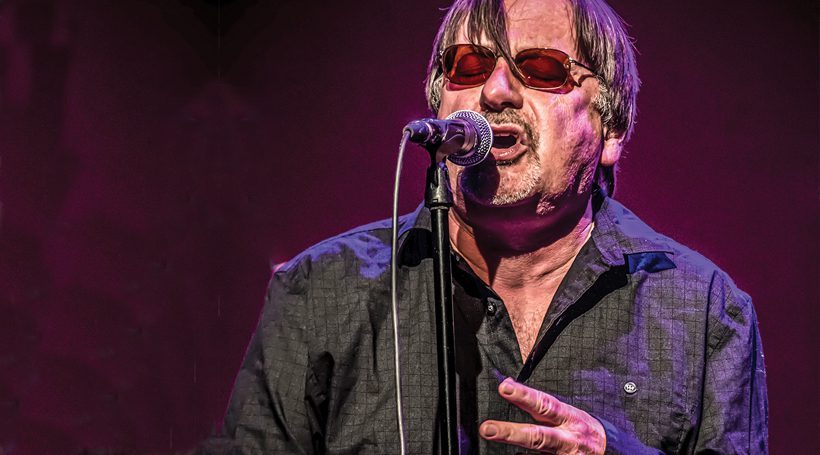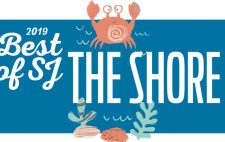Photography: Daniel Gonzalez
If you believe Bruce Springsteen is the only rock musician of significance to come out of the Jersey Shore, one thing is clear: You’re not a member of the New Jersey Hall of Fame’s induction committee.
After all, they’re the folks who recently determined that John Lyon – universally known as “Southside Johnny” – merits inclusion in the
highly-accomplished Class of 2019 along with the queen of DIY Martha Stewart, “Seinfeld” co-star Jason Alexander and “Game of Thrones”
author George R.R. Martin. They’ll all officially join ranks with Bruce and the other Jersey greats (How great? Past honorees include: Frank Sinatra, Tony Bennett, Albert Einstein, Jerry Lewis and Walt Whitman) during a fall ceremony.
Southside, as he refers to himself, cut his musical teeth at the same grungy clubs as Springsteen in the late-1960s and early-’70s. That’s where their half-century-long friendship took root. His 1976 debut album, “I Don’t Want to Go Home,” was the first of 27 LPs he recorded, 20 of them
under the “Southside Johnny & The Asbury Jukes” banner.
The 70-year-old singer, whose nickname is an homage to Chicago-based blues artists, is still doing what he loves on his own terms: performing his soulful act for diehard fans.
Q: You’ve always been linked with Bruce Springsteen. How, and when, did you guys meet?
He came and played at the Upstage Club, which was my hangout. I lived a mile away. So we met, we became friends and then we were in bands together. And you know, the way it happens is you become friends and experiment together with all sorts of different music and listen to all sorts of music.
You realize that you’re blessed to have a music scene. You talk to a lot of musicians around the world, and they go, “I grew up in a town where there was no club and you had to play in the garage or whatever. We were lucky we had places to play.
Q: What made you decide to be a singer as opposed to a guitar player or keyboard player?
Everybody was doing that. Everybody was playing guitar. So I played bass for a number of years. But I was no Paul McCartney. He’s brilliant at it. I was not brilliant at it. So eventually, I said, “Look, I’m not gonna play bass and I’ll just sing.”
I love singing for people. It really is an amazing feeling to sing a song and realize everybody enjoyed it. It’s just such a gratifying thing to sing and have people respond.
Q: Who were your influences?
Everybody from Louis Armstrong to Big Joe Turner to Ray Charles to Sam Cooke…Elmore James, Muddy Waters…the people who were passionate about singing.
Q: What would you have done had the music thing not worked out?
I had no backup plan. Maybe be a writer. But I don’t know if I would’ve been a success with that. Singing was easier for me to do, and I chose the easy path.
Q: How do you still keep doing it 50 years later?
You just do it. You just put your head down and head out. You know, as you get older, you have a little bit less stamina. But it’s just like everybody else that works at 70 years old; they know what it takes. They’re learning all the techniques for how not to lose their mind or get hurt. And it’s your job. You do it.
Q: Any idea how many gigs you’ve done professionally?
No, I don’t think about that. I wouldn’t know what that number would be. I’d probably be astonished.
Q: Is there one that really stands out in your memory?
I used to go to the Asbury Park Convention Hall to see bands. I would sneak in, and one time when I was 14, I snuck in to see James Brown.
Years later, I got to play on the same stage, and as I was walking down to perform, I thought, this is where I saw James Brown. It kinda hit me right before I went on stage. It was a golden moment for me. It was a real continuity thing. You are a part of the tradition of making music along with James Brown and all of the other people you saw here. It was a reminder that “Yeah, you really are part of the tradition of being a musician.”
Q: In the 1977 film, “Between the Lines” you’re in one scene, performing at a press party in your honor. Why didn’t you stick with the movies?
A lot of interesting things happened then. I remember Jeff Goldblum being pretty obnoxious to the director Joan Silver.
I always wanted to be on a movie set. That’s one of the reasons I took the gig.
One thing I learned was that you get there and you wait and wait and wait. Then, all of a sudden, everything happens for five seconds, 10 seconds, 15 seconds, and then stops for 25 minutes to move the lights and cameras. It’s just an awful way to make a living. But it’s a good way to learn how to do crossword puzzles.
Q: What does induction into the Jersey Hall of Fame mean to you?
I guess it’s a validation of 50 years’ worth of work, but I’m not one of those people who needs that. I just wish my parents were alive. They supported me in being a musician, and I think that’s a good validation of their story, of not trying to force me to be a college grad or teacher or something like that, which they wouldn’t have been able to do. I think they would be very happy about this.
Q: What would you have thought if someone told you back in the ’60s that you’d receive this honor?
I wouldn’t have believed them, of course. I probably would’ve felt, well it must be because I was the best bank robber in New Jersey or something like that. It’s not something I would have thought about. It just never was in my consciousness.
Q: How would Southside Johnny like to be remembered?
He gave you a good time.














